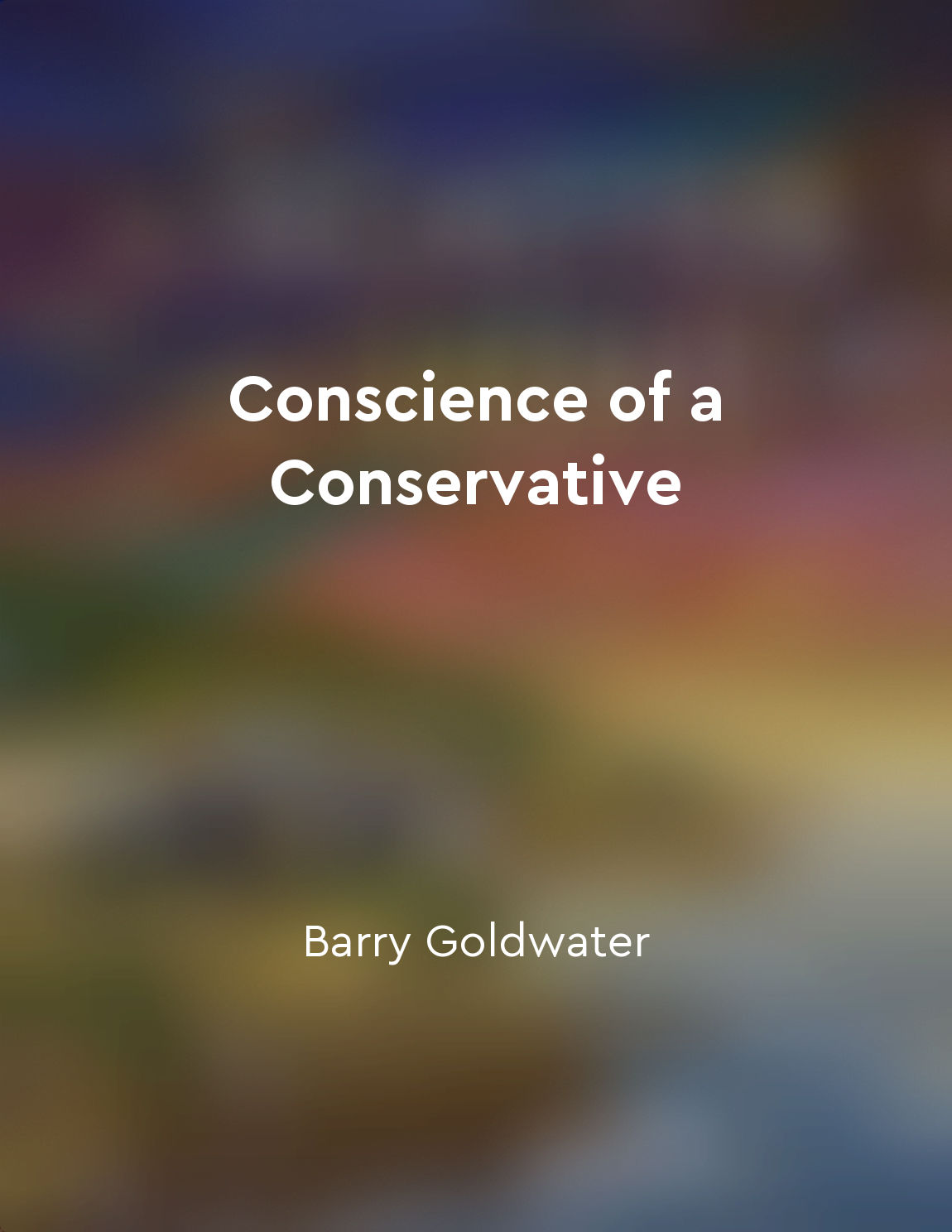Virtuous conduct is guided by a sense of duty from "summary" of The Theory of Moral Sentiments - Adam Smith by Adam Smith
Virtuous conduct is guided by a sense of duty. This principle, deeply ingrained in human nature, serves as the foundation for moral behavior. When individuals act in accordance with their sense of duty, they are motivated by a desire to uphold standards of right and wrong. This sense of duty compels them to consider not only their own interests but also the welfare of others. It is a moral compass that directs their actions towards the common good. Duty is not merely a matter of obligation; it is also a reflection of one's character. A virtuous individual is one who acts out of a sense of duty, not out of self-interest or personal gain. Such individuals demonstrate integrity, honesty, and fairness in their interactions with others. They uphold principles of justice and equity, even when faced with difficult choices or challenging circumst...Similar Posts
Put first things first
The concept of putting first things first is about prioritizing the most important tasks in your life. It involves organizing a...
Encourage creativity and innovation in problemsolving
Encouraging creativity and innovation in problem-solving is essential in nurturing a growth mindset within the family. When fac...
Practice selfdiscipline
Begin by reminding yourself that self-discipline is not an abstract concept or a lofty ideal to be admired from a distance. It ...
Education is essential for good citizenship
In order to understand the importance of education in creating good citizens, we must first consider the nature of citizenship ...
Conscience is the voice of reason within us
Conscience, that which speaks within us, is not a mere feeling, but rather the voice of reason itself. It is this faculty withi...
Autonomy is the foundational principle of morality, rooted in rational selfgovernance
Autonomy, as understood in moral philosophy, is the notion that individuals have the capacity to govern themselves in accordanc...

The role of government should be limited
The proper function of government, as our Founding Fathers understood it, is to secure the rights of individuals and to protect...
Religion is built upon faith and emotional commitments
Religion, according to Hume, is not grounded in reason or evidence, but rather in faith and emotional commitments. He argues th...

The nature of the self and the eternal soul
The Bhagavad Gita explains the nature of the self and the eternal soul in a profound manner. According to the teachings of Lord...

Arjuna's crisis on the battlefield
The warrior Arjuna found himself in a difficult situation on the battlefield of Kurukshetra. As the battle was about to begin, ...

